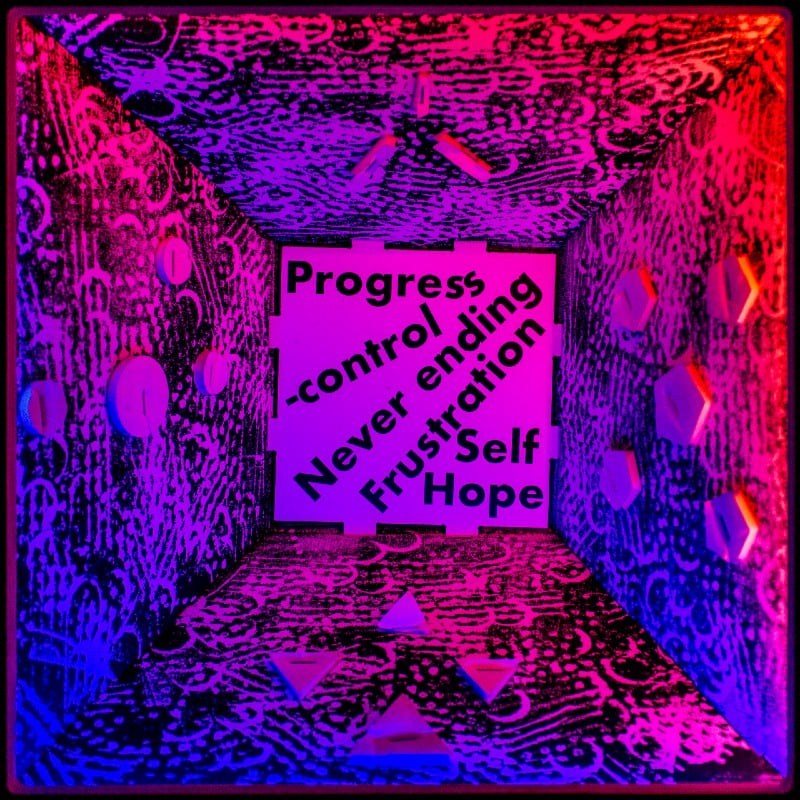We are a group of researchers working on a range of studies, largely focused on skin disease. Our work includes understanding more about the epidemiology of skin diseases.
We are a group of researchers working on a range of studies, largely focused on skin disease. Our work includes understanding more about the epidemiology of skin diseases (epidemiology explores who gets sick and why), specifically: eczema (atopic dermatitis), antimicrobial resistance in acne, herpes zoster and skin cancer. One of our major goals is research aimed at improving the health and quality of life of people with eczema.
Our world-leading work aims to answer important health-related questions using innovative methods and using available health and social data to answer important research questions. The major programme of work focused on public engagement including art, theatre and digital storytelling which aims to enhance our research and communicate with the public in a better way.
We have made major contributions to developing reporting guidelines to improve the transparency of research reporting and impact. Our group includes people from different backgrounds – including doctors, epidemiologists, medical statisticians and public engagement professionals– this breadth of experience helps us produce internationally-recognised research.
Funding
We operate with the generous support of the Wellcome Trust, Horizon 2020 Innovative Medicines Initiative (IMI), The British Skin Foundation, The European Academy of Dermatology and Venereology, and Health Data Research UK (funded by the UK Medical Research Council, Engineering and Physical Sciences Research Council, Economic and Social Research Council, Department of Health and Social Care (England), Chief Scientist Office of the Scottish Government Health and Social Care Directorates, Health and Social Care Research and Development Division (Welsh Government), Public Health Agency (Northern Ireland), British Heart Foundation and Wellcome Trust)
Eczema affects up to 10% of adults. Despite this, and although eczema is visible, there is limited public awareness of either the existence of eczema in adults or its effects on the individual. This awareness includes the impact of eczema on a person’s physical and mental health, social lives, educational attainment and economic prosperity. In this project we will engage adults with and without eczema in highly interactive ways to understand why adult eczema remains an “invisible visible” disease and how people perceive the impact of eczema on health and social outcomes in the long term.
Using art, photography, writing and theatre, we will bring adults with and without eczema together to understand how they perceive eczema affects long-term health and social outcomes. The outputs will be shared via these webpages to broaden and continue the discussion around the sociocultural aspects of adult eczema.
This project is funded by the Wellcome Trust, as part of a Research Enrichment – Public Engagement grant held by Professor Sinéad Langan, which is connected to her research using linked electronic health data to improve eczema diagnosis and outcomes.
Colouring Adult Eczema: Getting Under the Skin | Exhibition
Explore multiple layers of eczema from the physical to the emotional through craft, photography, and colourful lighting. Artists Peter Hudson and Julia Vogl worked with us to engage with the public to creatively explore the spectrum of experiences of adults living with eczema and to help share these stories. We can now share the outputs of these workshops more widely.
The sculpture is currently available to view Monday to Friday from 8:00 - 18:30 at Guy's and St Thomas' NHS Foundation Trust, London.
Past displays:
- 5-7 July 2022: British Association of Dermatologists 102nd Annual Meeting, Glasgow
- 7-20 July 2022: Advanced Research Centre, University of Glasgow
Our series of workshops aimed to challenge stereotypes about the condition in society and to understand how individuals perceive eczema affects long-term health and social outcomes through the creation of a dynamic web art and digital storytelling project. Workshop locations included Manchester (29 June 2019), Glasgow (13 July 2019), Newcastle (14 July 2019) and Nottingham (9 September 2019). View the workshop participants contributions.
Contact: SDRG@lshtm.ac.uk
ECZEMA!
ECZEMA! is a 35 minute play written and directed by Maria Fusco, Professor of Interdisciplinary Writing, exploring what it is like to live in co-occupation and incessant dialogue with eczema, a skin disease affecting an estimated 15 million people in the UK, including Fusco, herself. One voice. One organ.
The play was originally commissioned by National Theatre Wales for the 70th anniversary of the NHS (July 2018), was updated for new performances at South London Gallery (June 2019) to include testimonials from a creative writing workshop held by Fusco with adult sufferers of eczema in February 2019, supported by a Wellcome Trust enrichment grant awarded to Professor Sinéad Langan. It was a dark comedy performed by Welsh actor Rhodri Meilir (Pride, Doctor Who) who is in desperate dialogue with a great pipe organ, accompanied by organist, John Harris. The score was composed using motion-capture to translate scratching gestures (from Fusco) into music, to create a compelling vision of this ubiquitous skin disease.
The play is available as a red vinyl limited edition EP, produced by Accidental Records.
We invited Lulu O'Hagan, who is affected by adult eczema, to review ECZEMA!. You can read Lulu’s review, together with a review by Alice Lambert, Head of Services at the National Eczema Society.
Excerpts of ECZEMA! Filmed by Hydar Dewachi:
Praise for ECZEMA!
"An extraordinary text...the scored irritation progressed in paroxysmic rhythms, unleashing the auto-erotics and benignly directed passions of intense itching...a study of the body’s miscellany of culturally freighted products and vulgarities", Holly Pester, frieze.
"Eczema reminds us of the stranger and strangeness within ourselves", Daisy Lafarge, The White Review.
Visit Maria Fusco's website.
Overall theme
We are interested in the epidemiology of skin diseases, covering eczema (atopic dermatitis), antimicrobial resistance in acne, herpes zoster and skin cancer. Through our work, we aim to improve the health and quality of life of people affected by skin diseases, and specifically eczema.
Much of this research uses the extensive data collected in routine clinical practice in the UK and in other settings, including Denmark and the USA to help us answer the most important questions.
Current research
- Acne and antimicrobial resistance
-
Antibiotics are very important to treat infections and can improve survival. However, there is increasing resistance to antibiotics. Antibiotic resistance is a big problem; if antibiotics stop working, then there are limited ways of treating infections. Many teenagers get acne and doctors often treat them with antibiotics for many weeks or even months. Antibiotics are used in acne for their anti-inflammatory effects (to reduce the redness and soreness of spots) not because acne is an infection. The study will find out how many people get repeated courses of antibiotics for acne, how many of those using antibiotics get difficult-to-treat infections, and how much this costs the NHS.
- Blistering skin diseases
-
We are working in partnership with the University of Nottingham to undertake research using linked UK health care databases to look at the incidence of two serious blistering skin diseases, bullous pemphigoid (BP) and pemphigus vulgaris (PV), and to explore whether incidence relates to sociodemographic factors.
- Eczema and COVID-19
-
We are conducting a study to investigate if people with atopic eczema and on immune modifying treatments are at higher risk of severe COVID-19.
- Eczema and fractures
-
We are conducting a study to investigate whether people with eczema who are prescribed oral corticosteroids receive adequate fracture preventive care, and if provision of fracture preventive care depends on prescription patterns for oral corticosteroids.
- Further eczema research
-
Long-term outcomes
Recent studies suggest that eczema may be associated with major health and social problems, including heart disease. However, the existing studies are small, lack important information or cannot assess timing (i.e. does the outcome happen after the diagnosis of eczema). We are using international health data to assess the associations between eczema and major health and and social problems.
Gene-environment interactions
This work in partnership with the UK TREND eczema network addresses the evidence for gene-environment interactions in eczema.
ECO Programme grant
This programme of work, led by the University of Southampton and the University of Nottingham aims to improve eczema self-care.
BIOMAP
BIOMAP is a major programme of work funded by the Innovative Medicines Initiative and the European Commission, aiming to improve the lives of patients with eczema and psoriasis.
- Mental health conditions in eczema and psoriasis
-
We are researching the association between eczema, psoriasis and mental health conditions. There is strong evidence that mental health conditions such as depression and anxiety are more common in people with skin disease like eczema and psoriasis, but we do not know why. Possible causes include socioeconomic deprivation, poor sleep quality, poor lifestyle choices or inflammation. We also do not know whether people with eczema or psoriasis are at increased risk of more severe mental health conditions such as schizophrenia or bipolar disorder. We will analyse data from several sources including general practices, hospital admission, specialist mental health care, and the UK biobank to help answer this question. We also aim to identify which groups with eczema or psoriasis are most at risk of mental health conditions. Using this information can help us target screening at high risk groups. We are also working on a project with King’s College London to assess whether using technology and screening tools in waiting rooms at hospital skin clinics can help identify mental health conditions.
- Phenotypes of adult eczema
-
We are undertaking innovative work to phenotype adult eczema using information contained in electronic health records (EHRs) and longitudinal cohort studies coupled with detailed molecular data. Eczema is a disorder with very different presentations and disease courses, suggesting the existence of different eczema subtypes. We are investigating a variety of machine learning approaches to derive a new phenotypic classification to identify these subtypes, and our research will aim to define, systematically compare and assess them, and relate them to important clinical outcomes. The reasons for doing this work are to understand eczema better. This will help us better predict disease characteristics such as persistence and severity and its likely course and, in future, will help improve treatments.
- Skin cancer
-
We are leading the epidemiology and national database component of the UK Keratinocyte consortium of the British Association of Dermatologists in partnership with Public Health England.
- Vitamin D deficiency, shingles and COVID-19
-
We are conducting studies to explore the association between vitamin D deficiency and the risk of shingles and COVID-19 using UK Biobank and linked electronic health records.
Previous research
- Bereavement and skin disease
-
Stress is widely believed to play an important role in the onset of specific, common and important skin diseases, including psoriasis and eczema. However, we don’t have great evidence regarding the importance of stress in the onset of these disorders. We have been exploring the relationship between acute stress following bereavement of a partner and the onset of skin diseases. In our previous work, we found no evidence of a relationship between partner bereavement and herpes zoster.
- Eczema and cancer: England and Denmark
-
The existing research exploring whether there is a link between having atopic eczema and cancer was conflicting, and some of the existing studies were small and weren’t able to investigate whether having eczema came before a cancer diagnosis. So, we wanted to answer the question of whether there was a link between atopic eczema and cancer using real-world data from large numbers of people across two countries. We also felt that our study was particularly important now as new biologic drugs for atopic eczema that may affect cancer risk are being brought to market, so it is vital that we first understand the existing risk of cancer in people with atopic eczema. On the whole our findings are reassuring. For most cancers, we didn’t see any increased cancer risk for people with atopic eczema.
- Eczema and fractures
-
In our study, we reported that adults with eczema could have an increased risk of the type of broken bones that tend to be related with a condition called osteoporosis (a condition that weakens bones increasing fracture risk). Our findings were based on a study of GP and hospital records for large numbers of people with eczema (approximately 400,000).
So, if you have eczema, what do the results mean for you? We have summarised the key points below:
-
The overall risk of a broken bone is very low, so even though we have shown an increase, this is still represents a low risk of fractures (as a 10% increase of a small amount of risk is still a small amount of risk)
Our study estimated that an extra 164 people would break a bone compared to the number of bones expected in a group of 100,000 people without eczema. -
NICE (an organisation that guides the NHS about which treatments work and what tests should be done) guidance already highlights a lot of the issues we raised in our article, and NHS patients will be managed accordingly
NICE guides GPs and other doctors on what they should do about assessing fracture risk. The full guidelines are available here. Briefly, NICE recommend that doctors should consider assessing fracture risk in women over 65 and men over 75. In people younger than those ages, they recommend specific groups of people where doctors should consider doing assessments. These include people on long-term oral steroids. When patients with these risk factors attend GPs, they assess risk of fracture using questionnaires and checklists that have been proved to be useful for this purpose (including tools such as FRAX or QFracture). These fracture-risk assessment tools guide GPs in determining who needs a bone scan and who needs preventive treatment. -
People who have taken higher doses of oral steroids for long periods are an important group where doctors should consider assessing fracture risk.
However, increasing recognition of the risk of steroid treatment means that few people now use long-term high-dose steroid tablets for treating eczema, and it would be very rare indeed in the modern treatment of eczema.
In this study, we did not look directly at the effect of the drugs used to treat eczema.
In another study, we investigated the role of oral corticosteroid use in the relationship between eczema and fractures. We found no evidence that the increased fracture risk seen in people with eczema could be explained by oral corticosteroid use. This suggests that the increase in bone breaks that we saw was a consequence of eczema, rather than a side effect of treatments.
Please note, there are still questions to be addressed by future focused research to further investigate the reasons for the increased fracture risk identified in our studies and whether additional bone-density screening is warranted in those with eczema, beyond the NICE recommendations above and to further understand what we can do to improve bone health for people with eczema.
-
- Herpes zoster
-
We have conducted a wide range of work on herpes zoster using UK and US data to demonstrate that the zoster vaccine is effective in preventing zoster and postherpetic neuralgia within routine clinical care, showing for the first time that the Zostavax vaccine was effective against postherpetic neuralgia in routine care. Our work has provided unprecedented understanding of risk factors for zoster and its complications and on management of zoster in primary care. This programme of work has been fundamental to informing guidelines on the prevention and management of zoster.
- Phenotypes of childhood eczema
-
Using latent class analysis, we identified four well-defined and recognisable childhood phenotypes of eczema from symptom severity and trajectories. Thirty-four percent of children in a longitudinal cohort (ALSPAC) were most likely to have either: Severe-Frequent (4%), Moderate-Frequent (7%), Moderate-Declining (11%), or Mild-Intermittent (12%) symptoms of eczema during childhood. The remaining children (66%) were unaffected or only rarely presented symptoms. Null mutations in the filaggrin gene (FLG), a high polygenic risk score (PRS) and comorbid asthma were associated with higher risk for some or all phenotypes, and more strongly with the phenotypes with greater symptom severity and frequency; FLG and PRS further differentiated some phenotypes from each other. This differential association of risk factors among and between phenotypes is novel and requires further research.
Methods and reporting
The REporting of studies Conducted using Observational Routinely-collected Data (RECORD) is an international collaborative that developed reporting guidelines for studies conducted using routinely-collected health data (such as electronic medical record data, health administrative data, primary care surveillance data, and disease registries). The RECORD guidelines have been endorsed by many major journals. There is now an extension to RECORD to improve the reporting of pharmacoepidemiology studies (i.e. studies that explore the effects of drugs on disease) undertaken using routinely collected data.
You can visit the RECORD website at: www.record-statement.org.
Health Data Research: www.hdruk.ac.uk.
Merce Grau-Perez
Maria Fusco’s black comedy explores eczema; a skin disease affecting an estimated 15 million people in the UK, including Fusco herself.
The below review is written by Lulu O'Hagan. Lulu has taken quotes directly from Maria’s work (indicated by italics and quotation marks) and responded to them with her own insight and experiences.
The seats are full, the quiet descends.
The scene is set with Rhodri Meilir, the Welsh actor by his microphone, keeping his eye on the talented musician, his conductor, John Harris sitting at a beautiful but complicated-looking modern electric organ.
Electronic noise starts to hum and Rhodri commences his monologue with “I am skin that walks. Thrown out by heat, I wear this skin for a lifetime”. The deep powerful and Welsh tones only add to the expressive monologue that follows for 35 minutes.
Throughout, John Harris alternates with electronic atmospheric sounds from his laptop through the room’s speakers and the organ, tapping notes with his feet and hands.
“I communicate without words. I scratch in order to find out.”
“I would wrench my skin off, if I could.”
“Nothing is as fantastic as scratching.” – this is so true – often being compared to orgasmic feelings.
Approximately three minutes of electric generated tunes and then organ kicks in.
“The song of flaking skin on my left, inner eyelid is scaling through my eyebrow, up along my forehead and into my hairline, now screaming hot. The inside of my left elbow ⎯ sleeved in 100% cotton to stop skin touching skin ⎯ has its own persistent pitch, cranking when I use my arm in any way.
I know this feeling of skin on skin – I have to prevent this by putting cotton between arm joints or leg joints or thighs…for some reason if skin is itchy, only cotton soothes.
The items we’ve all used, “a toothbrush, a nutmeg grater”. So true – corners of tables, door handles…
“At the end of all the desire comes persuasion. I must eventually stop scratching.”
We all feel the pressure and the want and need to stop scratching, the never-ending cycle…
Monday
“I'm standing naked in an upright metal chamber. The only thing I'm wearing is what feels like, a welder's mask. The light tubes are switched on from outside, chuckling into life. This whirring, healing chamber ⎯ I hope.”
Bulbs never worked for me…
Tuesday
“I'm collecting my prescription from the chemist's. I'm ashamed each week when I do this because I always have the most, and, the heaviest bags.”
Yep – and it’s always a very annoying plastic one that I don’t want – ready prepared.
Wednesday
“Each time I touch my skin, I've been told to click the counter.”
“I am anxious to be average.”
Clicker was a waste of time – patronising object – I just want to not be the odd one out.
What follows is a jolly musical interlude and of powerful repetitions of “If it’s mine it’s not mine. If it’s not mine it’s mine. If it’s mine is not me”
Thursday
“I'm being examined in a university teaching hospital. Around me ⎯ tight as a knot ⎯ six medical students are conferring. All of these students are male; all of them are younger than me. My nipples are shredded with the scratching.”
My nipples used to weep and weep and stick to my bras at 18 years old. I’d put pieces of cotton between me and bra as we didn’t realise it was eczema necessarily – maybe it was the bra nylon… used to have to soak those bits of cotton off as they stuck…. The dermatologist said – nothing I can do.
“A scab is a drawbridge, constructed from biological materials that are hardening for protection.”
“The last peel of a scab is the saddest. With anticipation, and a slightly shaking hand, I loosen the SCAB, persuading the edges away from their knitted hole.”
“I dropped my newborn baby once, so occupied was I in scratching.”
So many things like this happen – when the itch takes over – nothing else (almost) matters.
Friday
Bloods taken. Thick elephant-like skin is so difficult. Many attempts to take blood are described in detail, and then the plaster won’t stick because of the emollients…
“The nice young nurse attempts her usual routine but to no avail. Her skin is perfect. How deeply embarrassing that I, whose skin is shuddering in crimson blooms, splitting in port ravines, suppurating primrose, should be witnessed by this complete parchment; this smooth proposition.”
Saturday
“My house is on fire! I do not sweat. No sweat. No sweating. I don't need a deodorant.”
No deodorant so true – because we boil, like someone stopping steam coming out from the kettle.
“Flames lick under my skin. I cannot extinguish them.”
Sunday
“The skin on my shoulders has been burnt by the light treatment and is oozing in protest against the assault.”
“My skin smells like a sick toffee apple”
“Being in co-occupation with an extremely rude neighbour”
“A red lace gown”
“The incessant laying on of hands”
“Bliss”
“Being in co-occupation ECZEMA!”
All of these are wonderful descriptions that I really appreciate and wouldn’t have thought of!
My brother-in-law doesn’t have eczema and has no experience of it – and he felt this gave him a much greater understanding of me and what my life has been.
THANK YOU MARIA
Review by Alice Lambert, Head of Services at the National Eczema Society (originally published in the National Eczema Society’s members' magazine, Exchange)
I was intrigued to see Maria Fusco’s play ECZEMA! after its first outing in Cardiff last year. Described as an ‘absurdist dark comedy’, ECZEMA! comprised 35 minutes of monologues, performed by Rhodri Meilir of Pride fame, accompanied by organist John Harris. The pipe organ accompaniment was composed using motion capture to translate scratching gestures into music.
Meilir recounted an eczema experience for each day of the week, from the perspectives of different people with eczema. These stories included a woman being examined by medical students and her feelings of discomfort and objectification, a child at school having to use a clicker whenever they scratched, and someone envying the clear skin of the healthcare professional treating them. The story rhythms and their increases in intensity, combined with the soundtrack, effectively evoked the frenzy of scratching.
The stories were interspersed with more conceptual monologues, including a lengthy, repetitive excerpt from RD Laing’s book Knots (1970), which tackled the question of whether eczema is an alien invader or product of self. This was probably my favourite part of the show, not so much because of the philosophical dilemma posed but because of the sinister fairground music that accompanied it.
It was refreshing to see the day-to-day physical and psychological challenges experienced by people with eczema brought to life in a creative and innovative way. Many people with eczema are likely to find much of the production wryly relatable. Hopefully it will also help others to gain a better understanding of what it’s like living in ‘co-occupation’ with the condition.
The London premiere of ECZEMA! was performed at the South London Gallery 4-5 June 2019. It was supported by the Wellcome Trust, as part of a Research Enrichment – Public Engagement grant held by Professor Sinéad Langan, which is connected to her research using linked electronic health data to improve eczema diagnosis and outcomes.




